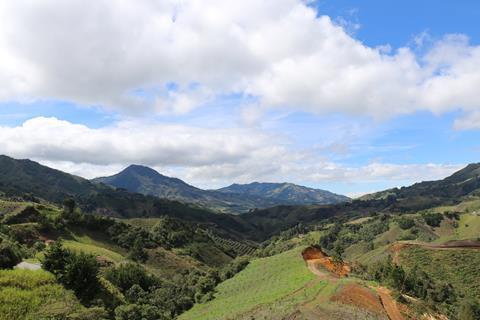Company hopes using insects and other natural control methods will contribute to its global target to enhance tree health and minimise the use of pesticides
Westfalia Fruit Group has launched a pioneering project in Chile rearing insects to naturally control agricultural pests such as Mealybugs and White scale.

In a large-scale demonstration scheme to show that a shift to more sustainable production management is possible, Westfalia Fruit Chile is targeting biological control as the preferred method of crop management. The company hopes using insects and other natural control methods will contribute to its global target to enhance tree health and minimise the use of pesticides.
Westfalia has an insect rearing facility at Pomaire, on of its biggest farms, located to the west of Santiago. Working with specialists, the facility produces beetle predators such as Rhyzobius lophanthae and Coccidophillus citricola for the control of White scale in avocado and Red Scale in citrus, as well as Cryptolaemus montrouzieri, known as ‘Mealybug destroyer’ for the control of Mealybugs in citrus, avocados and blueberries.
The ground-breaking project is initially being rolled-out on the company’s farms in Chile. “This season we are targeting 70 per cent of our own farms to be participating in insect release programmes and that increases to 100 per cent for citrus and avocado,” said Juan Enrique Ortuzar, Westfalia’s R&D manager in the country.
“We are developing and testing the programme on our commercial farms and when we have proof of concept, we will communicate this initiative with our growers and offer them insects if they would like to join. We have also started training our team so that they can educate and support growers as we roll this out.”
In the last year, Westfalia Fruit Chile has developed an insect release plan for each participating farm, with insects reared for each season and fruit that is grown. On all the farms, managers practice Integrated Pest Management (IPM) which now includes insect releases and at the packhouses a high-pressure washer in to eradicate the small number of pests that remain.
“We live with, for example, White scale in the orchard but we are well below the so-called economic damage threshold. By practicing IPM we deliver a quality product in a very safe and natural way,” explained Ortuzar.
To complement the use of insects for natural pest control, the Westfalia Chile team is also trialling mild plant treatments using pheromones, a new approach that causes sexual confusion for some pests, increasing control success without disrupting the natural balance of the orchard.
The project has shown such success that it has already been expanded to Colombia which faces extreme pest and disease challenges. Westfalia’s Colombian farms had already decreased their pesticide applications through this new programme.
“The whole idea is to reduce chemical treatment to a minimum and we believe we can achieve that with this kind of approach,” Ortuzar continued.
“It’s interesting because once you start this journey the more you learn and we are developing our own ideas and changing procedures based on our growing experience and successes. If our project could serve as a model for Westfalia globally we would be very proud.”



